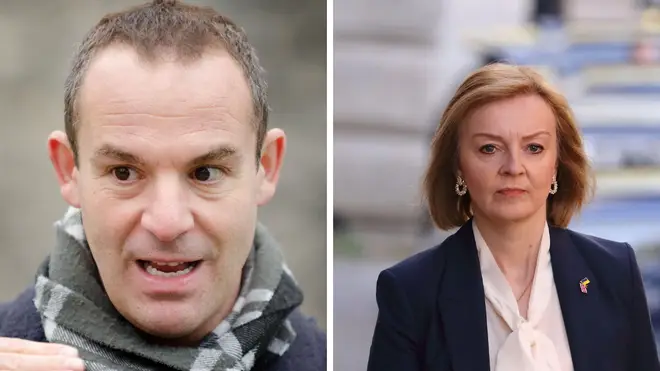
Ian Payne 4am - 7am
29 September 2022, 14:43 | Updated: 30 September 2022, 11:22

Money Saving Expert Martin Lewis has clarified claims households won't face more than £2,500 in energy bills.
During a series of floundering interviews on local radio stations this morning, Liz Truss said the government has taken action by "stepping in and making sure that nobody is paying fuel bills of more than £2,500”.
But Martin Lewis pointed out that that the new cap doesn't limit what people will pay, and will depend on their usage.
Writing on Twitter, he said: "There is no £2,500 cap on energy bills.
"Instead, the new 1 Oct guarantee, like the old caps, limits daily charge (28p gas, 46p elec) and Unit rates (10p/kWh gas, 34p/kWh elec).
"So use more, pay more. £2,500 is just what someone with avg use'd pay."
The consumer rights guru encouraged his followers to share the message in order to clear up the "confusion", caused by her comments.
The £2,500 cap was introduced by the Liz Truss as a flagship policy to tackle spiralling energy bills, but is based on the the average usage of a household.
Pls share to stop confusion.
— Martin Lewis (@MartinSLewis) September 28, 2022
THERE IS NO £2,500 CAP ON ENERGY BILLS.
Instead the new 1 Oct guarantee, like the old caps, limits
- Daily charge (28p gas, 46p elec)
- & Unit rates (10p/kWh gas, 34p/kWh elec)
So use more, pay more. £2,500 is just what someone with avg use'd pay
The energy price cap actually reflects the price per unit of energy, which means that households who use more energy may pay more.
According to the Government's own figures, detached houses will, on average, face a bill of around £3,300, while semi-detached properties will pay around £2,650.
Those living in flats will typically pay around £1,750 annually.
The support package, which was announced in early September, has cut the price cap by an average of £1,050, though it's still over double the October 2021 figure.